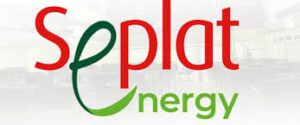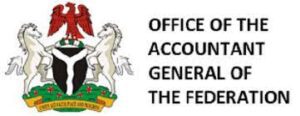Buhari approves N320bn intervention funds for public tertiary institutions
…Each University to get N1.15bn, Polytechnic, N699.3m, College of Education, N800.9m
…Sum highest since inception — TETFund Executive Secretary
…Says N1.702trn disbursed as education tax collection to institutions in 8yrs of Buhari
…Calls for Buhari’s assent to Finance Bill 2023 to increase education tax from 2.5% to 3%
…Use fund judiciously — Fed. Min of Education
Public higher institutions in the Country may be set for more intervention projects in 2023 as President Muhammadu Buhari approved the sum of N320,345,040,835 as the 2023 intervention funds for public tertiary education institutions in the Country.
The intervention fund which is highest since the inception of the Tertiary Education Trust Fund (TETFund) is projected to give face-lift to public tertiary institutions in the Country, many of which have been suffering infrastructure deficits and decay.
The Executive Secretary of Tertiary Education Trust Fund (TETFund), Arc. Sonny Echono, disclosed this in Abuja on Wednesday, during the Fund’s annual strategic planning workshop with all heads of beneficiary institutions.
Echono said the meeting was an avenue to receive feedback and evaluate the performance of its intervention lines to enhance a more robust delivering of the agency’s mandate.
Giving breakdown of the disbursement, he disclosed that the 2023 intervention cycle will see each University receiving N1,154,732,133.00; Polytechnic – N699,344,867.00, while each College of Education would get N800,862,602.
“I am pleased to inform you that Mr. President has approved the 2023 disbursement guidelines in the total sum of N320,345,040,835. (Three hundred and twenty billion, three hundred and forty-five million, forty thousand, eight hundred and thirty five Naira only). On the basis of this, each university shall get, for the Year 2023 intervention cycle, the total sum of N1,154,732,133.00.
“This comprises N954,732,123.00 as annual direct disbursement and N200million as zonal intervention. Similarly, each Polytechnic shall get N699,344,867.00 comprising of N569,344,807.00 as annual direct disbursement and N130million as zonal intervention, while each College of education shall get N800,862,602 comprising of N670,862,602.00 as annual direct disbursement and N130million as zonal intervention.
“It is pertinent to note that this represents the highest disbursement to each beneficiary institution, since inception of the Fund,” he said.
Echono further said the fortunes of the Nigerian tertiary education sector have improved significantly under Buhari’s administration, saying that between 2015 to date (eight years), the total sum of N1.702 trillion has been disbursed as education tax collection to public universities, polytechnics and colleges of education compared to a total sum of N1.249trillion disbursed from the inception of the Fund in 1993 up to 2014 (21 years).
“This remarkable success is due to sustained efforts at expanding and increasing the efficiency of collection of the Education Tax and added impetus is the gracious approval of Mr President for an increase in education tax from 2.0 per cent to 2.5 per cent in the year 2021,” he added.
The TETfund boss, however urged Buhari, as a parting gift to the education sector, to give his assent to Finance Bill 2023, which provides for a further increase in education tax from 2.5 per cent to 3 per cent.
On his part, the Permanent Secretary, of the Federal Ministry of Education, David Adejo has called on the beneficiary institutions to use the intervention judiciously.
He said that the Country is no longer looking for paper presentations, rather pragmatic and productive inputs.
Nigerian public tertiary institutions have been ridden with academic instabilities, particularly as members of both academic and non academic staff unions have continued to embark on strikes to protest poor conditions — a development which has characterised the system with inconsistencies.
Last year, a strike by the Academic Staff Union of Universities (ASUU) later joined by other Unions within the system had recorded closure of schools, with the former stretching its strike for over eight months, February – October 2022, leaving students staying home while disrupting academic calendar.




